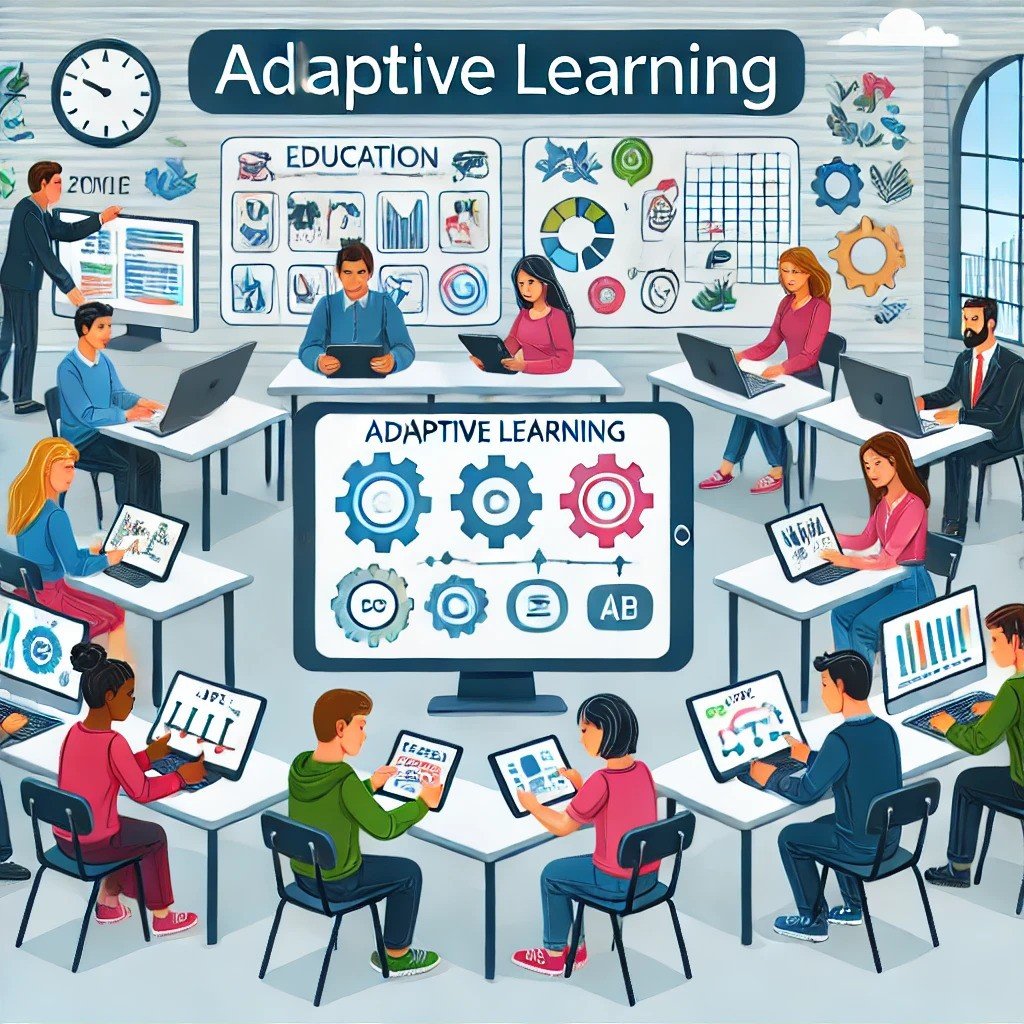Adaptive learning is revolutionizing the way we approach education by tailoring the learning experience to individual needs. This personalized approach enhances student engagement and outcomes, making it a key component in modern educational technology. In this article, we will explore the concept of adaptive learning, its benefits, and its impact on the future of education.
What is Adaptive Learning?
Adaptive learning is an educational method that uses technology to adjust the learning experience based on individual student performance. Unlike traditional learning methods that follow a one-size-fits-all approach, adaptive learning systems analyze student interactions and tailor content, assessments, and feedback to meet each learner’s unique needs.
Key Features of Adaptive Learning Systems
- Personalized Learning Paths: Adaptive learning systems create customized learning paths for each student based on their strengths and weaknesses. This ensures that learners receive content and challenges that are suited to their current level of understanding.
- Real-Time Feedback: These systems provide instant feedback to students, allowing them to understand their mistakes and learn from them immediately. Real-time feedback helps in maintaining student motivation and guiding them towards improvement.
- Data-Driven Insights: Adaptive learning platforms collect and analyze data on student performance, providing educators with valuable insights into their students’ learning progress. This data helps in identifying areas where students may need additional support.
Benefits of Adaptive Learning
it offers several benefits that contribute to its growing popularity in educational settings.
Enhanced Student Engagement
its systems keep students engaged by presenting content that is neither too easy nor too difficult. This balance helps in maintaining interest and motivation, leading to better learning outcomes.
Improved Learning Outcomes
By personalizing the learning experience, it ensures that students grasp concepts thoroughly before moving on to more advanced topics. This approach helps in achieving a deeper understanding of the material, which can lead to improved academic performance.
- Efficient Use of Time
its systems streamline the learning process by focusing on the areas where students need the most help. This targeted approach reduces the time spent on topics already mastered and allows for more efficient use of study time.
- Support for Diverse Learning Styles
Different students have different learning styles, and its systems can cater to these diverse needs. Whether a student learns best through visual aids, interactive exercises, or textual explanations, adaptive learning can provide resources that align with their preferred method of learning.
How Adaptive Learning Works
Adaptive systems use sophisticated algorithms and artificial intelligence to adjust the learning experience. Here’s a look at how these systems operate:
Data Collection and Analysis
Adaptive platforms collect data on student interactions, including quiz scores, time spent on tasks, and responses to questions. This data is analyzed to determine the student’s proficiency level and learning preferences.
Content Customization
Based on the analysis, the system customizes content and adjusts the difficulty level of the material presented to the student. This ensures that the learning experience is aligned with the student’s current understanding and learning pace.
Continuous Adjustment
Adaptive systems continuously monitor student performance and adjust the learning path as needed. If a student shows improvement, the system will gradually introduce more complex content. Conversely, if a student struggles, the system will provide additional support and practice opportunities.
Applications of Adaptive Learning
it is being applied across various educational contexts, from K-12 schools to higher education and corporate training.
K-12 Education
In K-12 education, adaptive systems help teachers address the diverse needs of their students. By providing personalized learning experiences, these systems support differentiated instruction and help ensure that every student has the opportunity to succeed.
Higher Education
In higher education, adaptive platforms are used to enhance course delivery and improve student outcomes. These systems help students navigate complex subjects by offering targeted resources and assessments tailored to their individual needs.
Corporate Training
it is also making an impact in corporate training environments. By personalizing training programs, businesses can ensure that employees receive the skills and knowledge necessary for their roles, leading to increased efficiency and productivity.
Challenges and Considerations
it offers numerous benefits, but there are also challenges and considerations to keep in mind.
- Technology Dependence
Adaptive systems rely heavily on technology, which can be a barrier for institutions with limited resources or technological infrastructure. Ensuring access to the necessary technology is crucial for successful implementation.
- Data Privacy
The collection and analysis of student data raise concerns about privacy and security. Educational institutions need to implement robust data protection measures and ensure compliance with privacy regulations.
- Integration with Existing Systems
Integrating adaptive systems with existing educational tools and platforms can be complex. Institutions must carefully plan and execute the integration process to ensure a smooth transition and maximize the benefits of adaptive learning.
The Future of Adaptive Learning
The future of adaptive is promising, with advancements in technology paving the way for even more personalized and effective educational experiences. As artificial intelligence and machine learning continue to evolve, adaptive learning systems will become increasingly sophisticated, offering new opportunities for enhancing education.

Emerging Trends
- AI-Driven Personalization: Future adaptive systems will leverage advanced artificial intelligence to offer even more precise and effective personalization.
- Integration with Virtual and Augmented Reality: The use of virtual and augmented reality in adaptive learning will provide immersive learning experiences, making education more engaging and interactive.
- Increased Accessibility: Efforts will continue to make adaptive systems more accessible to diverse populations, including those in underserved or remote areas.
Conclusion
Adaptive learning represents a significant advancement in educational technology, offering personalized, efficient, and engaging learning experiences. By tailoring content to individual needs and leveraging data-driven insights, adaptive learning systems are set to transform the future of education. As technology continues to evolve, adaptive learning will play a crucial role in shaping how we learn and teach.
